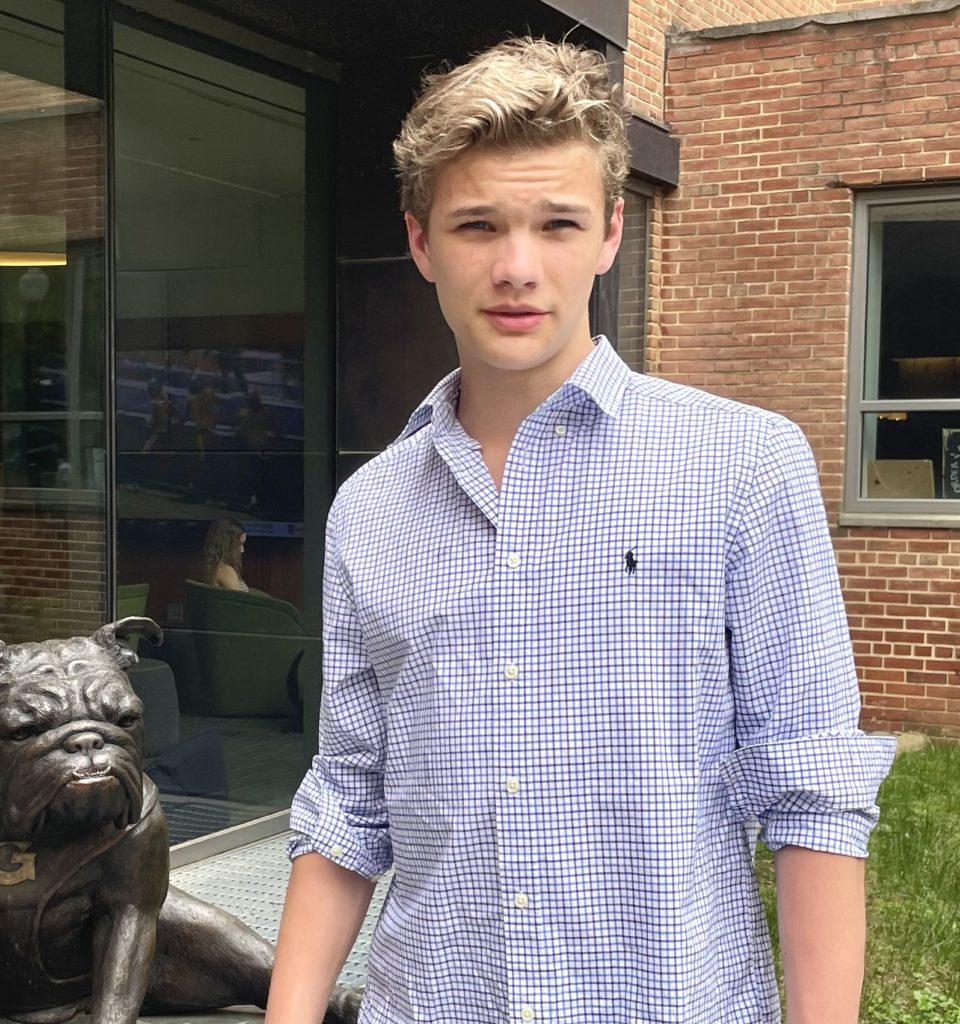
A Haddonfield eighth grader recently received the Junior Scientist Award for his proposal on a 2023 Genes in Space program hosted by miniPCR Bio and Boeing.
“I think it’s an incredibly valuable opportunity, if not for the skills you might get, for what you might learn,” winner William O’Donnell of Stanford Online High School said of the space program.
The contest is open to students in seventh through 12th grade and received about 800 submissions from more than 1,100 youth in the nation this year. Top prize is the opportunity for the winning proposal to be introduced to astronauts from the International Space Station.
“It’s a little different from most,” explained Marc Bliss, program leader for Genes in Space. “Rather than having a fully fledged experiment, in this competition, students come to Genes in Space with an idea. It’s an ideas contest where they put forward microbio proposals that could be done in space and kind of push the forefront of understanding space biology.”
Bliss noted that miniPCR Bio – his employer – makes bio technology hardware and equipment that is accessible, portable and more affordable than what one would find in high-end labs.
“In order to kind of illustrate that accessibility and portability, we wanted to demonstrate that science could be done literally anywhere,” he said, “and so we partnered with Boeing to start this program, Genes in Space, to allow for students to create these ideas that could be done in space.
“Usually what they’re looking for is a creative idea that hasn’t been done before that pushes the boundaries of our current understanding of space biology and … utilizes the tool kit that we put forward.
“It’s an understanding of our bio technology tools and a great application of the scientific process to answer a question that is interesting and useful.”
Bliss summed up O’Donnell’s proposal: to investigate the use of magnetic fields to protect against radiation in space by employing yeast cells to test whether or not those fields would protect the yeast itself.
“On the NASA website, it says one of the biggest problems to astronauts in space is radiation,” O’Donnell pointed out. “The site compares the amount of radiation experienced by astronauts to between 150 and 6,000 chest X-rays.
“Imagine long-term space habitation trying to deal with that level of radiation,” he added. “Imagine having any kind of self-sustaining human population. No one could have children, everyone would be at constant risk of their health just collapsing and it’s a big problem that’s not super hard to deal with.
“We have … several ways to deal with it, but what we need to know is how to optimize it.”
O’Donnell began his proposal as an assignment for his Life in the Cosmos class, what he described as a combination of physics and biology.
“I was totally eager to take the class and I was not disappointed,” he recalled. “The teacher that teaches it, Dr. (Kalee) Tock, was a huge inspiration to me and a huge help to me throughout the entire process.”
Over the three-month period he was working on the project, O’Donnell delved into research on the topic and learned how to use different resources such as Google Scholar.
“I find biology, especially like cellular biology, like DNA, extremely interesting, because it’s such a rapidly developing field of research …” he said.
“It’s really incredible.”
To learn more about the Genes in Space program, visit https://www.genesinspace.org/news/blog/announcing-the-2023-junior-scientist-and-constellation-awardees/.


